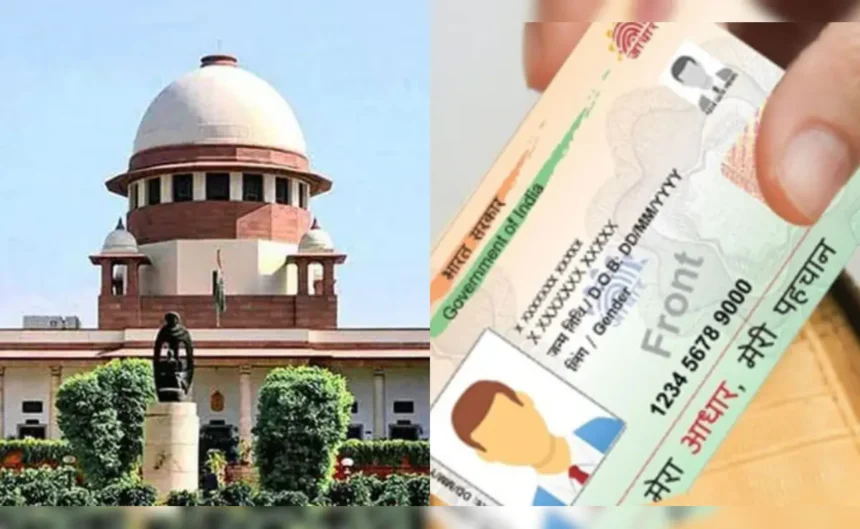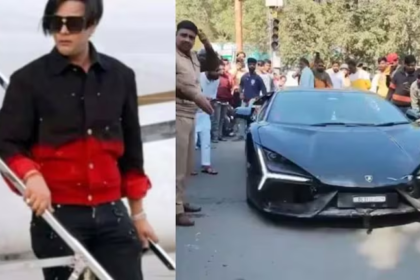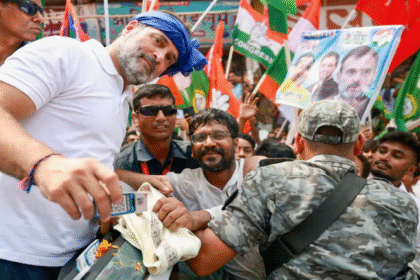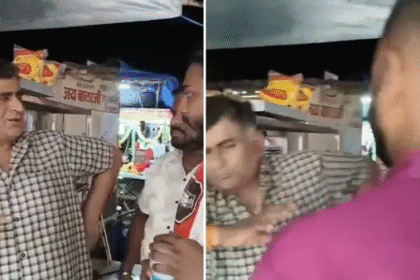Supreme Court Chides Political Parties Over Bihar SIR Voter Deletions, EC Defends Roll Revision
The Courtroom Clash and the Roots of Bihar’s Voter List Controversy
In India’s vibrant democracy, the sanctity of the voter list has always been regarded as the bedrock of free and fair elections. Without an accurate, inclusive, and transparent electoral roll, the credibility of the world’s largest democratic exercise could be severely undermined. Against this backdrop, the recent proceedings in the Supreme Court of India have sparked a nationwide debate. At the heart of the controversy lies the State of Bihar, where thousands of voters were allegedly deleted from the rolls under a Special Summary Revision (SSR).
The Supreme Court, visibly concerned, did not mince words. It openly chided political parties for their inaction, observing that despite repeated opportunities and established mechanisms, the parties failed to raise timely objections during the revision process. The justices emphasized that it is not enough to criticize after the fact; democratic stakeholders must act when it matters most. In response, the Election Commission of India (ECI) defended its actions, arguing that the deletions were carried out following due process and in line with guidelines. The ECI further assured that provisions exist for voters to restore their names by producing valid documents such as Aadhaar, voter ID, or other acceptable identification.
This initial exchange has set the stage for a far deeper discussion—one that touches upon the nature of accountability, the balance of responsibility between institutions and parties, and the lived experiences of ordinary citizens who suddenly find themselves disenfranchised.
Democracy and the Electoral Roll: Why Accuracy Matters
India’s electoral roll is not just a bureaucratic list—it is the foundation of democratic participation. Each name represents a voice, a right, and a stake in governance. When voters are wrongfully excluded, the impact extends beyond statistics. It translates into silenced citizens, broken trust, and potential distortions in election outcomes.
Bihar’s case illustrates the tension between procedural safeguards and practical execution. The ECI routinely carries out revisions to eliminate duplicates, remove deceased individuals, and ensure accuracy. However, the deletion of legitimate voters due to clerical errors, miscommunication, or overzealous cleansing poses a grave challenge. For those removed, particularly marginalized groups, re-entry into the system often requires documentation they may not easily possess.
This raises the core question the Supreme Court grappled with: where does the ultimate responsibility lie? Should the Election Commission bear the entire burden, or must political parties also actively participate in monitoring, objecting, and assisting citizens during revisions?
Supreme Court’s Rebuke to Political Parties
During the hearings, the bench made it clear that it was “surprised by the inaction of political parties.” Despite being primary stakeholders in elections, parties had failed to scrutinize the deletions and assist affected voters. The justices observed that political parties have full access to draft rolls during the revision process, yet many choose to remain silent until after controversies erupt.
This judicial rebuke is significant. It reflects an underlying frustration with how political parties often focus on electoral gains rather than institutional responsibilities. By not engaging meaningfully in the revision process, parties inadvertently allow loopholes and errors to persist. Later, when disenfranchisement becomes visible, they resort to public criticism instead of constructive intervention.
The Supreme Court’s remarks thus underline a broader truth: democracy thrives only when all stakeholders—institutions, parties, and citizens—act responsibly and collaboratively.
The Election Commission’s Defense
On the other side of the courtroom, the Election Commission defended its record. Officials argued that the deletions were part of a legitimate exercise to maintain the purity of the electoral roll. They pointed out that multiple notices and opportunities for objections were issued. The Commission highlighted that those affected could easily restore their names by submitting valid documents, including Aadhaar, ration cards, or any government-approved identity proof.
The EC’s position is rooted in its mandate to ensure accuracy, not just inclusivity. Duplicate entries, deceased individuals, and shifted voters often bloat rolls, creating opportunities for electoral malpractice. The Commission insists that its revisions were carried out transparently, with sufficient safeguards in place for genuine voters.
Yet, critics argue that for millions of citizens—especially in states like Bihar where documentation gaps persist—restoration is not as simple as it sounds. For the urban middle class, producing Aadhaar or other IDs may be straightforward. But for migrant laborers, daily wage earners, or rural households, the process can be cumbersome and intimidating.
Bihar’s Political Landscape: Why This Matters Now
The controversy could not have come at a more sensitive time. Bihar, with its rich political history and complex social fabric, remains a crucial battleground in national politics. Any allegation of disenfranchisement carries enormous political weight.
The deletions, under what is called the Special Summary Revision (SSR), have raised fears that entire communities may have been disproportionately affected. Some opposition voices claim that marginalized castes and migrant populations were particularly vulnerable to wrongful deletions. Though the Election Commission denies any bias, the optics of the issue have sparked fresh concerns over electoral fairness in Bihar.
The Supreme Court’s intervention has therefore taken on added significance. It not only highlights administrative shortcomings but also presses political actors to shoulder responsibility in safeguarding the rights of voters.
Citizens at the Receiving End
Behind every statistic lies a personal story. Consider the case of Ramesh Kumar, a migrant worker in Patna who discovered his name missing just weeks before local elections. Despite having voted in the same constituency for a decade, his name was struck off during the revision. Ramesh now faces the uphill task of producing documents he misplaced during migration.
Or take the example of Shanti Devi, a 70-year-old widow whose name was deleted despite being a permanent resident. She does not possess Aadhaar and relies solely on her voter ID as proof of identity. Her disenfranchisement is not just a bureaucratic error—it is a denial of her only means of participation in governance.
These stories reflect the real human cost of electoral roll errors. They also explain why judicial scrutiny and political accountability are indispensable.
Broader Implications for Indian Democracy
The Bihar controversy is not an isolated incident. Across India, similar concerns have emerged in recent years. In states like Telangana, Assam, and Karnataka, voters have complained about wrongful deletions. In some cases, lakhs of names vanished in a single revision exercise.
The Supreme Court’s intervention, therefore, resonates far beyond Bihar. It forces a national conversation about the structural vulnerabilities in India’s electoral system. As the world’s largest democracy, India cannot afford systemic disenfranchisement. Even the perception of bias or negligence erodes public trust.
By admonishing political parties and scrutinizing the Election Commission, the judiciary has positioned itself as a guardian of democratic integrity. But long-term solutions will require deeper reforms, including technological improvements, community participation, and stronger accountability mechanisms.
Looking Ahead: The Road to Resolution
As proceedings continue, several questions demand urgent answers:
- How many voters were truly deleted in Bihar under the SSR?
- Were certain communities disproportionately affected?
- What role did political parties actually play during the revision?
- How effective are the restoration mechanisms for ordinary citizens?
- What reforms can prevent such controversies in the future?
The Supreme Court has indicated that voter rights cannot be taken lightly. It is likely to push for stricter oversight and perhaps even new frameworks to ensure that both the Election Commission and political parties discharge their duties with diligence.
The opening chapter of this unfolding saga makes one thing clear: the fight for voter rights in Bihar is not merely a local dispute—it is a test of India’s democratic resilience. By rebuking political parties and scrutinizing the Election Commission, the Supreme Court has signaled that the right to vote is too sacred to be compromised.
For citizens, this battle is about recognition, inclusion, and dignity. For institutions, it is about credibility. And for political parties, it is about remembering that democracy is not just about contesting elections, but also about protecting the very people who make those elections possible.
The Supreme Court’s scrutiny of the Bihar voter deletion controversy has already triggered a nationwide conversation on accountability. In Part 1, we explored the immediate clash between the judiciary, political parties, and the Election Commission. In Part 2, we will take a deeper dive into the legal framework, historical precedents, institutional challenges, and the global perspective on voter roll integrity. By situating Bihar’s case within a broader context, it becomes possible to understand why such controversies recur—and what systemic reforms might finally resolve them.
The Legal Framework Governing Electoral Rolls in India
At the core of the debate lies the Representation of the People Act, 1950 (RPA 1950), which provides the foundation for preparing and maintaining electoral rolls. Under Section 15 of the Act, the Election Commission of India (ECI) is empowered to supervise the preparation, revision, and updating of voter lists. The law mandates that every eligible citizen above the age of 18 should be enrolled in the constituency of their residence, provided they are not disqualified under the law.
Key provisions include:
- Annual Summary Revision: The EC conducts regular summary revisions before elections to ensure rolls are updated.
- Claims and Objections: Draft rolls are published, and citizens (as well as political parties) have the right to raise objections or file claims for inclusion.
- Deletion Criteria: Names can be deleted if a person is deceased, has shifted residence, or is otherwise disqualified.
- Restoration Mechanisms: Wrongful deletions can be corrected through re-application, often requiring documentary proof like Aadhaar, ration card, passport, or voter ID.
The Supreme Court’s concern in the Bihar case arises from whether this legal framework was followed in both spirit and letter. While the EC insists that due process was observed, petitioners argue that the implementation was flawed, leading to mass disenfranchisement.
Historical Precedents of Voter Deletions
India’s electoral history is replete with controversies over voter lists. Bihar is only the latest flashpoint in a long chain of disputes.
- Telangana, 2018: Before state assembly elections, reports surfaced of nearly 20 lakh names missing from the rolls. Civil society groups alleged systemic negligence.
- Assam NRC, 2019: Although technically separate from the electoral roll, the National Register of Citizens (NRC) process sparked massive concerns over exclusion. Critics feared that disenfranchisement could spill into voter lists.
- Karnataka, 2018: Opposition parties accused the ruling dispensation of orchestrating selective deletions in Bengaluru constituencies. The EC ordered an inquiry.
- Delhi, 2019: Ahead of the Lok Sabha elections, complaints of wrongful deletions again surfaced, with opposition leaders alleging political motives.
These cases reveal a recurring pattern: large-scale deletions followed by public outcry, political blame games, and institutional defense. The Bihar controversy is not an anomaly—it is symptomatic of a structural weakness in India’s voter roll management system.
The Institutional Challenge: Balancing Accuracy and Inclusion
The Election Commission faces a complex dilemma. On the one hand, it must ensure accuracy by removing duplicates, deceased persons, and fake entries. On the other, it must guarantee inclusion so that no eligible voter is wrongfully excluded. Striking this balance has always been difficult, especially in a country with high migration, large rural populations, and uneven documentation.
Some challenges include:
- High Internal Migration: Millions of Indians move every year for work. Bihar, a state with one of the highest migration rates, sees voters shifting between villages, towns, and cities, often without updating official records.
- Documentation Gaps: Marginalized groups—such as daily wage laborers, tribals, and the urban poor—may lack proper documents, making restoration difficult once their names are deleted.
- Technological Limitations: Although the EC has embraced digitization, data entry errors, mismatched details, and poor integration between databases remain persistent problems.
- Political Apathy: Parties often treat voter roll revision as the EC’s job, even though the law allows and expects them to participate actively.
This institutional challenge explains why controversies like Bihar’s continue to surface despite repeated reforms.
The Role of Political Parties: From Watchdogs to Bystanders
The Supreme Court’s remarks targeted a fundamental issue: the passivity of political parties. Electoral law grants parties the right to scrutinize draft rolls, raise objections, and file representations. Yet, many parties only engage with the issue when deletions become a public controversy.
Why does this happen?
- Short-Term Focus: Parties are often more concerned with campaign strategies and seat calculations than with structural processes like roll revisions.
- Resource Allocation: Monitoring electoral rolls across thousands of polling stations requires resources that smaller parties may not have, while larger parties may not prioritize it.
- Blame Game Politics: By staying silent during the process, parties later gain the advantage of criticizing the EC without having invested effort in corrections.
The Court’s rebuke, therefore, was not just about Bihar but about a wider democratic culture in which political actors have abandoned their role as guardians of voter rights.
Citizens in the Crossfire
While institutions and parties trade accusations, the real burden falls on citizens. For the poor, disenfranchisement often translates into invisibility—not only in elections but also in social recognition. In states like Bihar, where caste, class, and migration patterns already determine access to resources, losing one’s vote deepens marginalization.
- Migrant Workers: Many find themselves deleted from home constituencies while being unable to register in their work destinations due to lack of proof of residence.
- Women: Married women who move households often face deletion if their records are not updated promptly.
- Elderly Citizens: Many older voters rely only on voter ID as proof; when their names are deleted, restoration becomes arduous.
These human consequences underline why the voter list controversy is not merely an administrative glitch but a civil rights issue.
International Comparisons: How Do Other Democracies Handle Voter Rolls?
India is not alone in grappling with voter roll controversies. Around the world, democracies have faced similar dilemmas.
- United States: Voter purges to remove inactive voters have often sparked lawsuits, with critics alleging targeted suppression of minorities.
- United Kingdom: The shift to Individual Electoral Registration (IER) was meant to improve accuracy but initially led to a decline in registered voters.
- Australia: The Electoral Commission uses automatic enrollment based on tax and social security data, reducing errors but raising privacy concerns.
- Brazil: Voter registration is compulsory and biometric verification is widely used, helping minimize duplicates but creating logistical challenges.
These examples show that no system is foolproof. Every democracy must balance transparency, inclusivity, and efficiency. For India, with its scale and diversity, the task is exponentially harder—but not impossible.
Technology as a Double-Edged Sword
The Election Commission has increasingly turned to technology—linking Aadhaar with voter IDs, deploying digital apps for verification, and exploring biometric authentication. While these innovations hold promise, they also introduce new risks.
- Data Mismatches: Aadhaar details often contain spelling errors, leading to wrongful deletions when linked with voter records.
- Privacy Concerns: Civil society groups warn against centralizing sensitive voter data without adequate safeguards.
- Digital Divide: Rural populations with limited digital literacy may find themselves further marginalized in a technology-driven system.
The Bihar case once again raises the question: can technology be a solution if the underlying human oversight and accountability mechanisms remain weak?
The Judicial Role: Guardian of Democratic Rights
The Supreme Court’s intervention highlights the judiciary’s role as the ultimate protector of fundamental rights. Voting is not explicitly mentioned as a fundamental right in the Constitution, but it flows from the right to equality and participation in governance.
Over the years, the Court has delivered landmark judgments emphasizing free and fair elections as part of the basic structure of the Constitution. In the Bihar case, its sharp remarks against political parties are more than judicial commentary—they are a reminder that democratic institutions must rise above complacency.
The Court is now expected to lay down guidelines that could reshape how voter roll revisions are handled in the future. This could include stricter monitoring, mandatory accountability reports from parties, and more citizen-centric grievance redressal mechanisms.
As we step back and look at the Bihar controversy through legal, historical, and institutional lenses, one thing becomes clear: this is not merely a story about missing names. It is a story about how India’s democratic machinery struggles to keep pace with its social realities.
The Supreme Court has rightly questioned the inaction of political parties. The Election Commission, though armed with legal authority, faces structural limitations. Citizens, particularly the vulnerable, remain at the receiving end.
To move forward, India must reimagine voter roll management not as a bureaucratic chore but as a democratic safeguard that requires active participation from all stakeholders.
Also Read : Russian Oil Imports: How Reliance Became India’s Top Buyer Under U.S. Scrutiny








